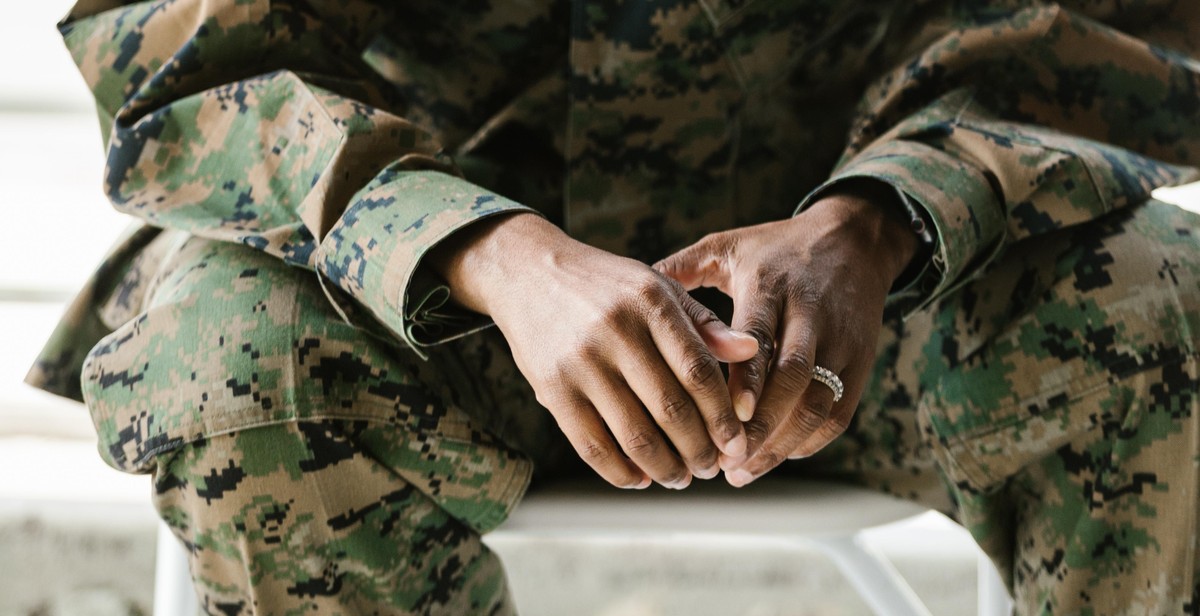Psychological Impact of War on Veterans and Their Families
As a professional article writer and content creator, I have had the opportunity to research and write about various topics. However, one topic that has always been of great interest to me is the psychological impact of war on veterans and their families.
Personal Experience
My interest in this topic stems from personal experience. I have a close friend who served in the military and was deployed to a war zone. When he returned home, he was not the same person. He struggled with anxiety, depression, and post-traumatic stress disorder (PTSD). Seeing my friend go through this experience and the impact it had on his family was eye-opening.
Scope of the Article
In this article, I will explore the psychological impact of war on veterans and their families. I will discuss the various mental health conditions that veterans may experience, the challenges they face in accessing mental health care, and the impact of these conditions on their families. I will also highlight some of the support services available to veterans and their families.
Why This Topic Matters
This topic is important because it sheds light on the challenges that veterans and their families face when it comes to mental health. It also highlights the need for greater support and resources for those who have served our country. By understanding the psychological impact of war, we can work towards providing better care and support for our veterans and their families.

Understanding the Psychological Impact of War
War is a traumatic experience that can have a significant impact on both the physical and mental health of veterans and their families. The psychological effects of war can be long-lasting and can affect every aspect of a person’s life. The most common mental health conditions that veterans and their families face are Post-Traumatic Stress Disorder (PTSD), depression, and anxiety.
Post-Traumatic Stress Disorder (PTSD)
PTSD is a mental health condition that can develop after a person experiences or witnesses a traumatic event. In the case of veterans, the traumatic event is usually combat-related. Symptoms of PTSD can include flashbacks, nightmares, avoidance behaviors, and hyperarousal.
PTSD can significantly impact a person’s ability to function in daily life. It can affect relationships, work, and overall quality of life. It’s important to note that not all veterans who experience combat will develop PTSD, but it is a common condition among veterans.
Depression
Depression is a mental health condition that can develop as a result of the stress and trauma of war. Depression can cause feelings of sadness, hopelessness, and a loss of interest in activities that were once enjoyable. It can also cause physical symptoms such as fatigue, changes in appetite, and difficulty sleeping.
Depression can make it difficult for veterans to function in daily life and can impact relationships, work, and overall quality of life. It’s important for veterans to seek treatment for depression to improve their mental health and wellbeing.
Anxiety
Anxiety is another common mental health condition among veterans. Anxiety can cause excessive worrying, fear, and panic attacks. It can also cause physical symptoms such as sweating, trembling, and a rapid heartbeat.
Anxiety can significantly impact a person’s ability to function in daily life. It can affect relationships, work, and overall quality of life. It’s important for veterans to seek treatment for anxiety to improve their mental health and wellbeing.
Conclusion
PTSD, depression, and anxiety are common mental health conditions that veterans and their families may experience as a result of the trauma of war. It’s important for veterans to seek treatment for these conditions to improve their mental health and wellbeing. With proper treatment and support, veterans and their families can overcome the psychological impact of war and lead fulfilling lives.

Challenges Faced by Veterans and Their Families
War and military service can have a profound impact on the mental, emotional, and physical health of veterans. It can also have a significant impact on their families, who often face unique challenges as a result of their loved one’s service. Here are some of the most common challenges faced by veterans and their families:
Relationship Issues
One of the most significant challenges faced by veterans and their families is maintaining healthy relationships. Military service can put a significant strain on relationships due to long periods of separation, frequent moves, and the stress of deployment. This can lead to communication breakdowns, feelings of isolation and loneliness, and even divorce.
For veterans with PTSD or other mental health issues, relationship problems can be even more pronounced. Symptoms of PTSD, such as irritability, anger, and emotional numbing, can make it difficult for veterans to connect with their loved ones and can lead to conflict and tension in the home.
Financial Issues
Many veterans face financial challenges after leaving the military. They may struggle to find employment or to transition to civilian life, which can lead to financial instability and stress. This can be especially challenging for veterans with disabilities or injuries that limit their ability to work.
For families, financial issues can also be a significant source of stress. They may need to adjust to a lower income if the veteran is unable to work, or may face unexpected expenses related to the veteran’s service or medical care.
Social Isolation
Veterans and their families may also experience social isolation as a result of their military service. They may feel disconnected from their communities, or may struggle to relate to civilians who have not experienced the same challenges and traumas.
For veterans with PTSD or other mental health issues, social isolation can be particularly challenging. They may avoid social situations or feel uncomfortable around others, which can lead to further isolation and feelings of loneliness.
| Challenges Faced by Veterans and Their Families | |
|---|---|
| Relationship Issues | Communication breakdowns, feelings of isolation and loneliness, divorce, PTSD symptoms |
| Financial Issues | Unemployment, financial instability, unexpected expenses related to service or medical care |
| Social Isolation | Disconnected from communities, difficulty relating to civilians, avoidance of social situations |
Overall, veterans and their families face a variety of challenges related to military service. These challenges can have a significant impact on their mental, emotional, and physical health, and can make it difficult to adjust to civilian life. However, with support and resources, veterans and their families can overcome these challenges and build fulfilling, successful lives.

Treatment Options for Veterans and Their Families
There are several treatment options available for veterans and their families who are experiencing the psychological impact of war. These treatment options include psychotherapy, medications, and support groups.
Psychotherapy
Psychotherapy is a type of talk therapy that can help veterans and their families to manage the emotional and psychological effects of war. This type of therapy involves talking with a mental health professional who can help them to identify and work through their feelings, thoughts, and behaviors related to their experiences.
There are several types of psychotherapy that can be effective for veterans and their families, including cognitive-behavioral therapy (CBT), which helps to identify and change negative thought patterns and behaviors, and exposure therapy, which involves gradually exposing the individual to the traumatic event in a safe and controlled environment.
Medications
Medications can also be effective in treating the psychological impact of war. Antidepressants, anti-anxiety medications, and sleep aids can be prescribed to help manage symptoms such as depression, anxiety, and insomnia.
It is important to note that medications alone are not always enough to manage the psychological impact of war, and they should be used in conjunction with other treatment options such as psychotherapy and support groups.
Support Groups
Support groups can provide a valuable source of emotional support and understanding for veterans and their families. These groups are often led by mental health professionals and can provide a safe space for individuals to share their experiences and feelings with others who have had similar experiences.
Support groups can also provide practical advice and resources for managing the psychological impact of war, including coping strategies and information about other treatment options.
| Treatment Options | Description |
|---|---|
| Psychotherapy | Talk therapy to manage emotional and psychological effects of war |
| Medications | Antidepressants, anti-anxiety medications, and sleep aids to manage symptoms |
| Support Groups | Emotional support and understanding from others with similar experiences |
